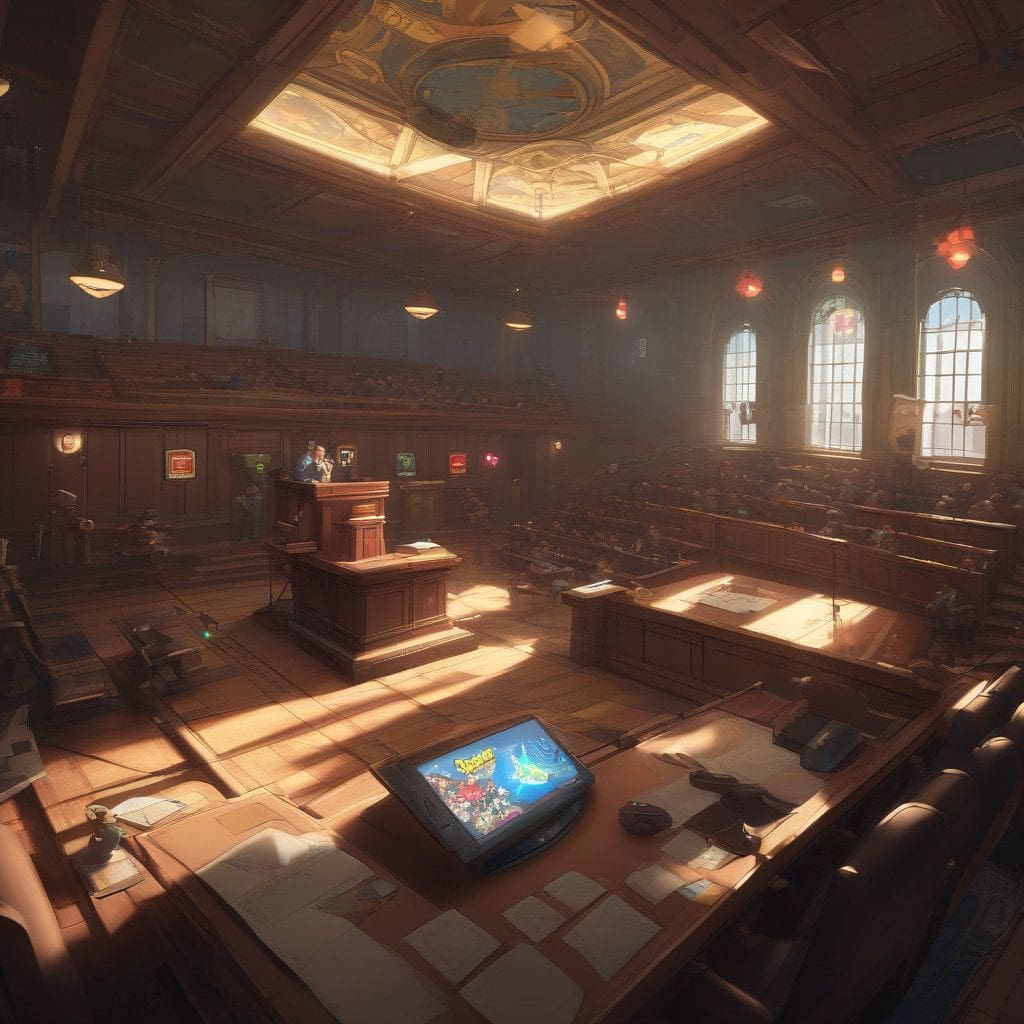The gaming industry is no stranger to legal disputes, but the lawsuit filed by Nintendo and The Pokémon Company against Pocketpair Inc. has raised eyebrows. The lawsuit, which was lodged in the Tokyo District Court, claims that Pocketpair’s survival adventure game, “Palworld,” infringes upon multiple patents held by the two companies. This legal action not only seeks to halt the distribution of “Palworld” but also demands damages from the Tokyo-based game studio.
As a hybrid of survival and creature-collecting gameplay, “Palworld” has been described by many fans as “Pokémon with guns.” This unique concept caught the attention of gamers and critics alike, positioning Pocketpair prominently in the market. However, the surprise lawsuit from industry giants Nintendo and Pokémon Co has left the company in a precarious situation. Pocketpair responded to the lawsuit by expressing confusion, stating that they had yet to be informed about the specific patents in question. Such a lack of clarity can create a challenging environment for small developers facing corporate giants.
The crux of the lawsuit is the alleged infringement of patents, a concern that has become increasingly prevalent in the gaming industry. Patent disputes can be seen as a strategic move, often used by larger companies to stifle competition from emerging studios. For instance, Epic Games and Apple also faced legal battles over similar issues, illustrating the ongoing tension surrounding intellectual property rights in the digital arena.
Pocketpair has expressed its intention to investigate the lawsuit thoroughly while continuing to focus on global partnerships, such as its recent partnership with Sony to enhance the global licensing of “Palworld.” However, the diversion of resources from game development to legal battles can be detrimental to smaller studios. The unfortunate reality is that legal challenges like this can consume valuable time and capital, impacting the overall health of a burgeoning company.
This legal conflict is not just significant for Pocketpair; it also highlights broader trends within the gaming industry. The Pokémon Company, in particular, has made its stance clear earlier this year, indicating it would not hesitate to pursue any violations of its intellectual property. This aggressive approach towards protecting their brand and innovations showcases the increasing need for vigilance among game developers regarding patent laws.
Moreover, the lawsuit could set a precedent for how similar cases are handled in the future. If Nintendo and Pokémon Co succeed in this legal action, it may embolden other large corporations to pursue aggressive legal strategies against smaller studios, further complicating the landscape for budding game developers.
The situation also reflects the growing complexities of the gaming ecosystem. With the rise of indie games and the increasing willingness of consumers to embrace more innovative and novel gameplay mechanics, patent litigation may now become a tool used by major players to maintain their competitive edge. This is evident in the way that unique concepts, like those presented in “Palworld,” are now under scrutiny for infringement, instead of simply being innovative ideas.
As the case unfolds, Pocketpair’s ability to maneuver through this legal maze will be crucial. The company has indicated its resolve to fight back against these allegations and maintain its vision for “Palworld.” However, the outcome remains uncertain.
This lawsuit serves as a warning to other independent game developers: innovation can attract unwanted attention from established companies wielding significant legal power. The ongoing battle demonstrates a critical tension between creativity and corporate law, particularly in an industry that thrives on fresh ideas and inventive gameplay.
In conclusion, the legal action taken by Nintendo and The Pokémon Company against Pocketpair Inc. is much more than a simple lawsuit. It symbolizes broader issues concerning intellectual property rights, competition, and the balance of power within the gaming industry. As the case progresses, it will be interesting to see how the resolution impacts not only “Palworld” but also the wider gaming landscape, potentially influencing how small developers approach innovation in the face of corporate giants.












